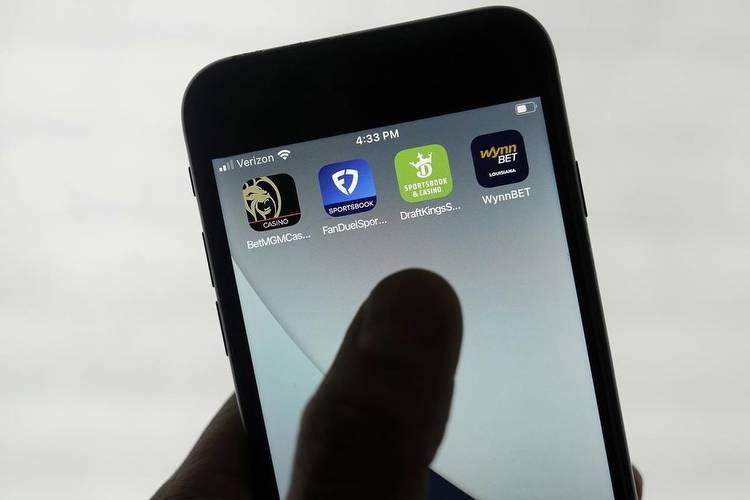Are gambling ads harmful? You can bet on it

Canada severely restricts, and in some cases bans, the advertising of tobacco and alcohol.
We should do the same for gambling.
Promoting gambling using celebrities, delusions of success and other fantasies entices young people and triggers those with an addiction.
In other words, advertising gambling (like drinking or smoking) does a lot more harm than good.
Not to mention that it’s hardly necessary. Canadians are already prodigious gamblers when it comes to casino games, lotteries, bingo and, increasingly, sports betting.
Like much else in our lives, it has also moved online. You can fritter away your money 24/7, from the comfort of your own home.
In Ontario alone, bettors wagered $35.5-billion online last year, according to iGaming Ontario. It’s not clear how much of that total is sports betting, but the Canadian Gaming Association estimates the sports bettor market is about $14-billion.
The tsunami of sports betting ads is certainly contributing to this massive spending.
In calling for a “whistle-to-whistle ban” on advertising for gambling platforms during sports broadcasts, the Centre for Addiction and Mental Health has thrust this issue into the public eye. During the recent NHL playoff series between the Toronto Maple Leafs and Florida Panthers, up to nine minutes of each broadcast hour were dedicated to sports gambling ads, including everything from traditional 30-second ads to logos and messages digitally superimposed on the boards around the ice (but no commentator chatter about point spreads or betting lines).
Sports betting ads are as misleading as they are annoying.
Using hockey stars like Wayne Gretzky and Connor McDavid (both are BetMGM ambassadors) and Auston Matthews (for Bet99), the ads are designed to make betting on hockey look like a surefire money-maker, and fun and exciting.
The reality is that, like all gambling, losing is the norm – Mr. Gretzky’s tacky exhortation that every bet “has the potential for greatness,” notwithstanding.
Multimillionaire athletes peddling sports betting is the modern equivalent of the doctors who were featured in smoking ads prior to the 1950s. History will not be kind to them.
In August, 2021, the federal government legalized single-sport betting. This was not a bad move. As with tobacco, alcohol, and cannabis, having a regulated market is preferable to a black market; the products are safer and taxes can be collected.
But in Canada’s constitutional division of powers, the provinces are responsible for regulation. Most treated sports betting the same as their provincially run casinos and lotteries.
Ontario, however, took a unique route in opening the door to private enterprise in April, 2022. Gaming companies flocked to the new market, and the intense competition – 76 online gambling websites and counting – prompted an advertising war.
Now we’re seeing the overdue pushback, with the emergence of groups like Ban Ads For Gambling, which was launched by wise folks including University of Toronto professor and former Olympian Bruce Kidd, former Toronto mayor John Sewell, and uber-hockey dad Karl Subban.
As Mr. Kidd notes, when sports gambling was legalized, there was much fretting about the possibility of match-fixing and in-game manipulation, with little attention paid to the health implications.
And the potential harms are many, especially to problem gamblers, a small but not insignificant minority (just over 300,000 people in Canada): Runaway debt, stress to families, anxiety, depression, and even suicide. Enticing children and teens into gambling can also set them up for a lifetime of problems.
The U.K. is a cautionary tale. They opened the door to advertising for sports betting in 2007, and saw a sharp rise in problem gamblers – now 1.4 million people, including 55,000 children aged 11 to 16. There are also more than 400 suicides a year attributed to gambling woes.
Another troubling stat out of the U.K.: 86 per cent of gambling is done by just five per cent of customers. In other words, most people gamble responsibly, but much harm comes to a small minority. They are the ones triggered by ads.
The U.K., along with a number of other countries, is now cracking down on gambling advertising. They don’t allow sports gambling ads until later at night (usually after 9 p.m.) so children don’t see them, and they ban the use of celebrities, sports stars and cartoon characters in these ads.
This seems to be the way Ontario’s regulator is leaning. The ads will remain, but without the hockey phenom mouthpieces.
The Netherlands, for their part, have banned sports gambling ads entirely, an approach Canada would do well to follow.
There is no more need for Canadians to be encouraged to gamble than to drink or smoke. Better to reduce the harm now than to try to patch up broken people later.




































